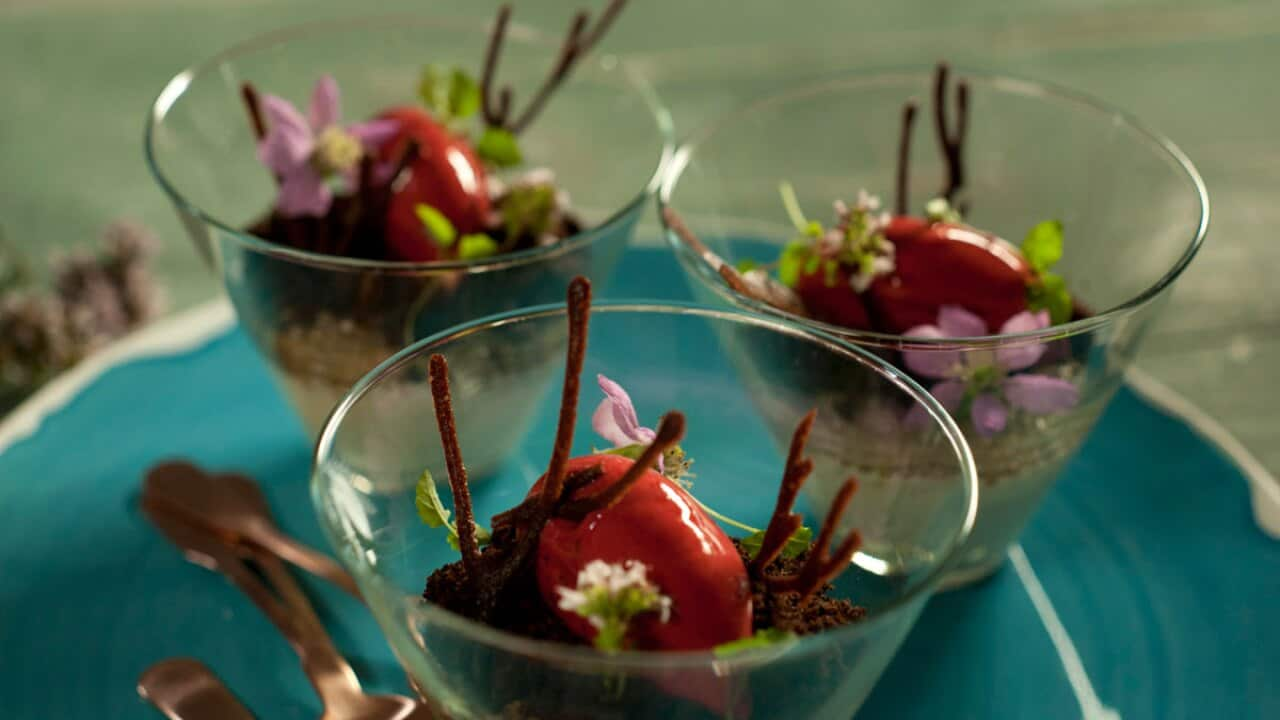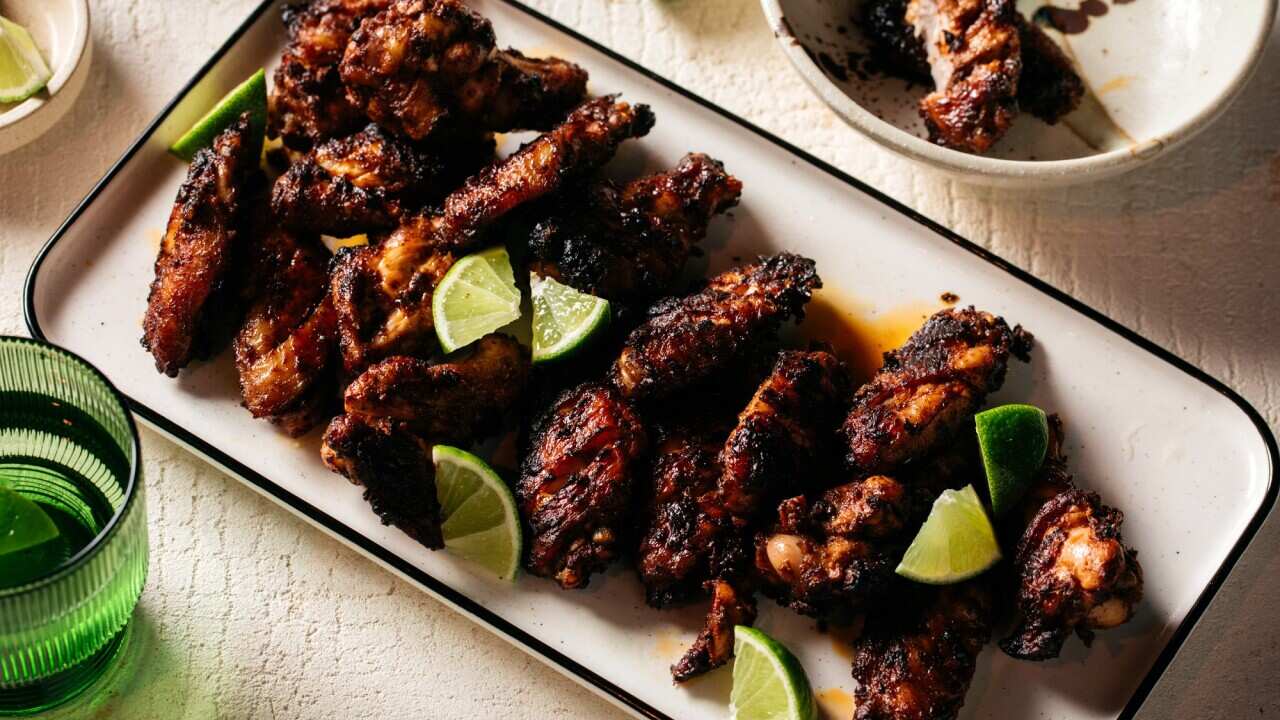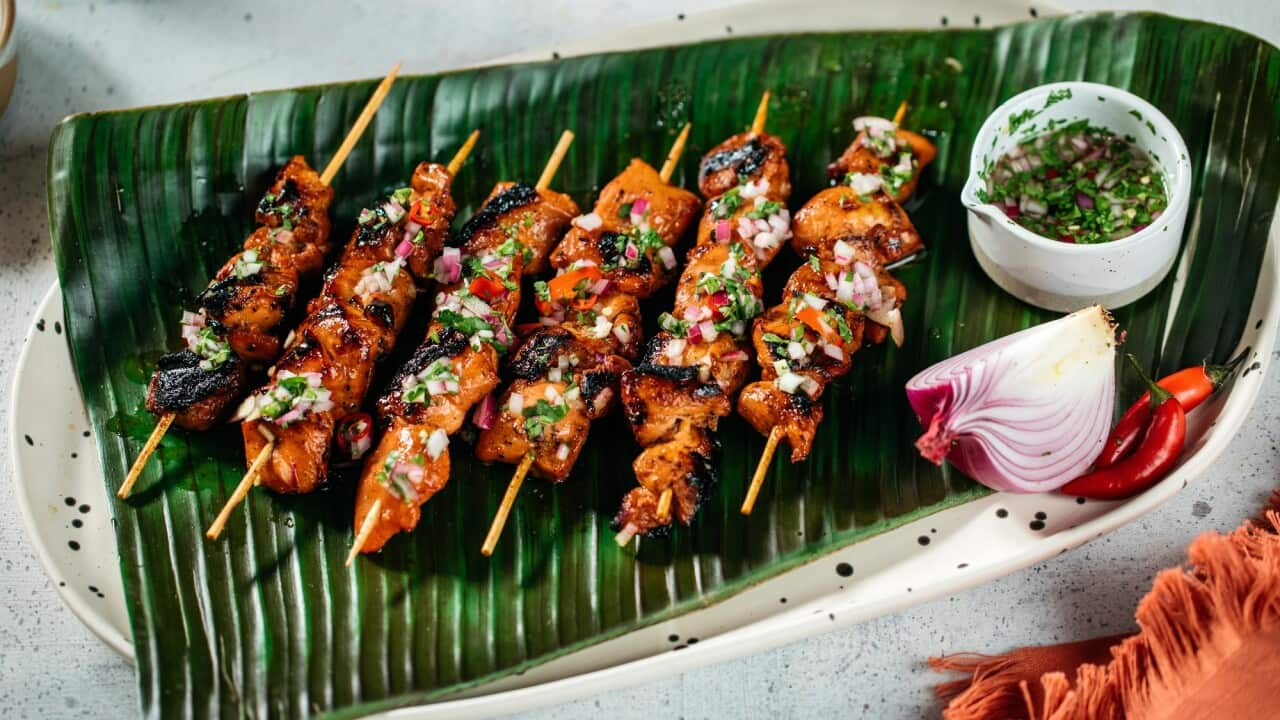Australians can now get their sticky hands on the first locally manufactured, plant-based and sugar-free chewing gum, made from the ancient Mediterranean Pistacia resin.
The new digestible chewing gum, Mast Chew, is based on a decades-old recipe featuring the mastic-like resin of the Pistacia plant: a small tree belonging to the cashew family.
The chewing gum, which is now available at select stores throughout the country, contains no synthetics, latex, sugars, colours, additives or artificial sweeteners.
It has a woody, earthy undertone and gives off a warm feeling in the mouth.
Neda Blackwood works at the small family-owned Australian-Kurdish company producing the chewing gum, , located on the NSW South Coast.
“A lot of people say this new chewing gum tastes like mastic,” says Blackwood, the company’s scientific officer.
“It has a woody, earthy undertone and gives off a warm feeling in the mouth.
“The gum’s base is made with the resin from the Pistacia genus tree. They tap into the trunk and extract the resin from the tree.
“The other ingredients in the gum are bee’s wax; xylitol and maltitol – two natural sugar alcohols used to sweeten the gum; natural mint oil and acacia gum. That’s it.”
The resin used in Mast Chew is sourced internationally from a range of regions where the Pistacia plant grows, from the Canary Islands to Turkey, Kurdistan, Iraq and Iran.
“We’ve also gone to a lot of effort to get rid of a lot of artificial colours and preservatives that you see in other chewing gums. So there’s no titanium dioxide in there. There’s no aspartame either – we try to use natural sweeteners.”
Blackwood tells SBS that because the gum is made from natural ingredients it is biodegradable.
“A major issue with most chewing gums is that they are petroleum-based and are not biodegradable, so it can become quite a problem. That’s why chewing gum is banned in some countries like Singapore. This gum has a natural base so it doesn’t cause that same problem.”
Although the new chewing gum is quite a unique product in Australia, having only been on sale for a few months in South Australian health food stores and Victorian IGAs, similar gums have been sold for many years throughout the Middle East and southern Europe.
Dr Sharif Sharifi – Blackwood’s father and the creator of Mast Chew – is also believed to have introduced the first commercial version of the gum to the Middle East around 35 years ago.
“My dad, Dr Sharif Sharifi, started the first natural plant-based chewing gum in Kurdistan around 35 years ago,” she says. “That was the first time in the world that [commercially-manufactured chewing gum] was made using Pistacia resin.
“That company is still being run by his brothers and the chewing gum is still available for sale in Saudi Arabia, Iraq, Turkey and throughout a lot of the Middle East.”
Blackwood explains that Pistacia resin has been traditionally used for thousands of years as a Middle Eastern and Mediterranean remedy to maintain gut health, prevent tooth decay and treat abdominal related issues including heartburn, gastric and intestinal ulcers.
Research – – shows that the polymers from mastic gum of Pistacia plants have anti-microbial benefits.
“We don’t technically need chewing gum but we don’t technically need a lot of things as well. It is a lifestyle choice as well,” says Blackwood.
“But I think we need a healthier version of chewing gum because what’s currently out there, in my opinion, has so many hidden ingredients.
“Other chewing gums sold at the moment don’t serve a purpose but we believe ours has a positive health effect. We believe it can help to sooth indigestion and heartburn and help with digestive healing as well.
“So why not make chewing gum serve an actual purpose rather than just consuming gum that does nothing for you?”
We’ve also gone to a lot of effort to get rid of a lot of artificial colours and preservatives that you see in other chewing gums.
The product is not certified organic. However, Blackwood says the company is in the process of seeking registration.
The gum is also not registered as a medicine or product with medicinal purposes with but is currently approved for use and sale in Australia as a food product.













